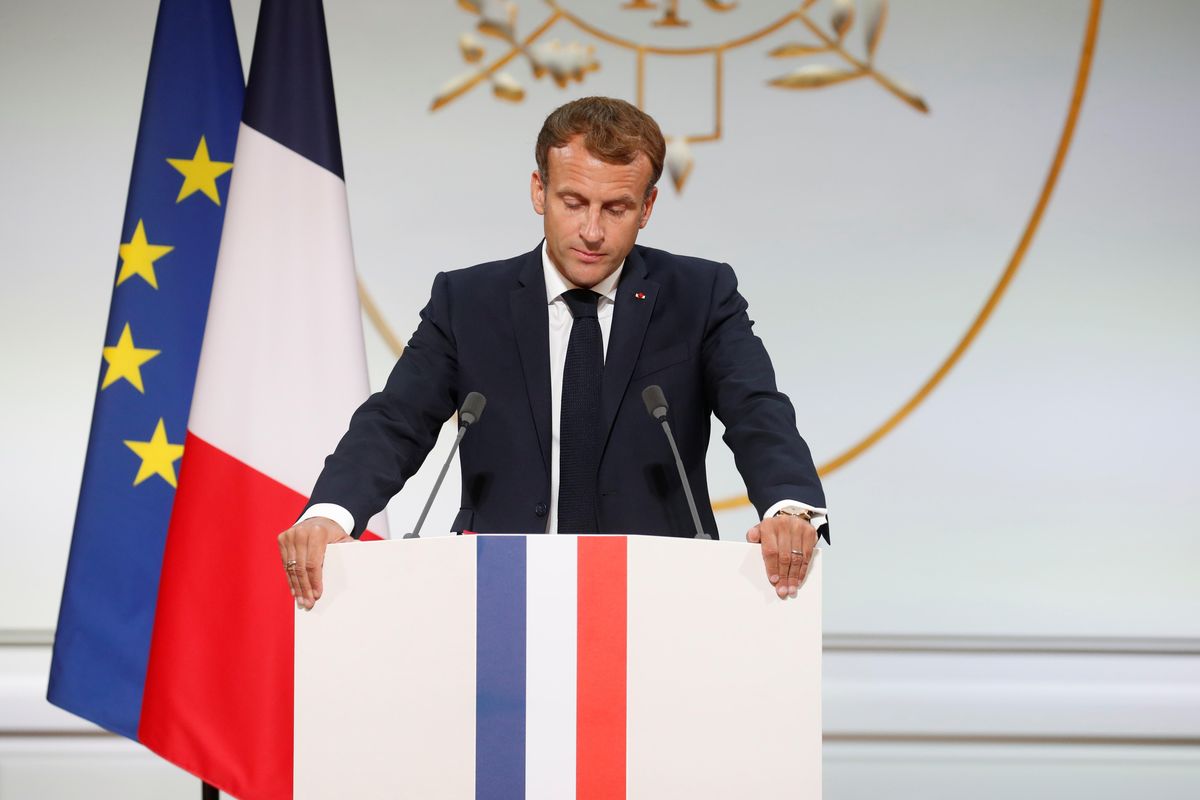Betrayal. Treason. Duplicity. These are some of the words used by the French government to describe the US' recent decision to freeze Paris out of a new security pact with the UK and Australia in the Indo-Pacific, which nixed a contract for Australia to buy French submarines.
Macron's subsequent tough stance against one of its oldest and closest allies is unusual, including his decision to briefly recall the French ambassador from Washington, the first time a French president has done so. But this headstrong strategy is also a deliberate diplomatic choice.
Politics is personal. At least on some level, Macron is lashing out because America has embarrassed France and left Macron's own ego badly bruised. Biden could have kept the France-Australian sub deal alive while moving forward with the AUKUS security agreement under the cloak of secrecy. But instead, the US chose to tear it all up, sending a clear message to Paris: you're not that important.
For Macron, who became France's youngest-ever president at age 39, thanks in part to a large dose of self-belief, this diss cuts deep.
Strategic autonomy. Since coming to power in 2017, Macron has been a strong advocate of Europe pursuing a defense strategy independent from the US. (You may recall the kerfuffle that ensued after Macron called NATO "braindead.")
Macron has long said that France — and Europe — should deploy its military might to defend its own interests abroad, regardless of what America's priorities are. And asserting France's independence as a key player in the Indo-Pacific by selling arms to Australia — which in turn would help safeguard Paris' own strategic interests in the region — is exactly what Macron was trying to do when the US recently pulled the rug out from under him.
What's more, with Germany's Angela Merkel preparing to exit the stage in mere days, and the post-Brexit UK out of the EU, Macron has been vying to fill the bloc's leadership gap, but this snub scuttles his plan.
Looking inwards. France is just six months away from a general election that's shaping out to be a close race between the incumbent and his far-right rival Marine Le Pen. Le Pen, for her part, has already capitalized on France's recent diplomatic snafu with Washington to cast Macron as pandering to the Americans and unable to stand up for French interests on the global stage.
Macron, who has increasingly veered to the right on certain issues as centrism in France has lost its appeal, knows that he can't afford to look toothless, and that taking a hard line on the US could reap political benefits come election day (only 44 percent of French adults now view the US favorably).
Because close French presidential elections go to a runoff, Le Pen is still a long shot to go all the way to the top. But a string of political crises in the months ahead would increase the likelihood that another candidate, perhaps a political outsider, takes center stage — just as Macron, a former political newbie, won in an upset for the establishment in 2017.
Is Macron out in the cold? Macron took a punt in forcefully going after the US. And it's reasonable to assume that he thought EU partners would back him up more emphatically. But so far, the response has been mostly muted. (The EU's Ursula von der Leyen said tepidly in an interview that "one of our member states has been treated in a way that is not acceptable," while outside the EU, British PM Boris Johnson told Macron to "prenez un grip.")
Clearly, Paris felt ditched: after the sub snub, France's foreign minister said that EU nations need to stick together because it's the only way for Europe to "remain part of history." But as has been the case on a range of geopolitical issues, including the bloc's relations with Russia and China, the EU's 27 member states have divergent priorities.
Macron's gamble. Macron is saying all the right stuff to prove that he's nobody's lackey. And reportedly gave President Biden a piece of his mind on a call Wednesday. But if Macron fails to follow through on his threats and enforce any real consequences, he risks being perceived as a softy — exactly what he's been trying to avoid.



















